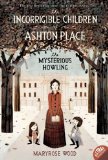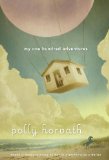Summary | Excerpt | Reviews | Beyond the book | Read-Alikes | Genres & Themes | Author Bio

A hilarious novel which parodies "old-fashioned" children's books, including the requisite uncaring and self-centered parents, estimable orphans, and a questionable nanny...
Abandoned by their ill-humored parents to the care of an odious nanny, Tim, the twins, Barnaby A and Barnaby B, and their sister, Jane, attempt to fulfill their roles as good old-fashioned children. Following the models set in lauded tales from "A Christmas Carol" to "Mary Poppins", the four Willoughbys hope to attain their proscribed happy ending too, or at least a satisfyingly maudlin one.
However, it is an unquestionably ruthless act that sets in motion the transformations that lead to their salvation and to happy endings for not only the four children, but their nanny, an abandoned baby, a candy magnate, and his long-lost son too.
Replete with a tongue-in-cheek glossary and bibliography, this hilarious and decidedly old-fashioned parody pays playful homage to classic works of children's literature.
Lois Lowry's The Willoughbys is the latest faux antique to hit your quaint little bookshop's fusty shelves. To make sure the reader gets the joke, Lowry's blast from the past includes pointedly charming retro pen and ink illustrations; wavy old-fashioned fonts, and alliterative, adverb-laden diction ("A Novel Nefariously Written & Ignominiously Illustrated by the Author") ... To be truly delectable, The Willoughbys must work for children who haven't read Toby Tyler, Or, Ten Weeks with the Circus; Ragged Dick; Pollyanna; Heidi; or The Bobbsey Twins and Baby May. It does. Despite Lowry's satiric distancing and its jokes and puns, when the Willoughbys, homeless and hungry in more ways than one, finally discover that they're valuable, worthy of nourishment, and capable of bringing joy to grown-ups, we applaud...continued
Full Review
 (590 words)
(590 words)
(Reviewed by Jo Perry).
Chocolate as a drink was a favorite of Montezuma, Emperor of the Aztecs. Hernando Cortez brought the drink back to Spain in 1529. It remained a favorite of the Spanish royalty for many years before being consumed widely throughout Europe.
It was not until three centuries later in England that chocolate was first used as a non-liquid confection. The inventor of 'chocolate for eating' is unknown, but in 1847, Joseph Fry & Son -- under the leadership of the original Joseph Fry's great-grandson -- discovered a way to mix some of the melted cacao butter back into defatted, or "Dutched," cocoa powder (along with sugar) to create a paste that could be pressed into a mold. John Cadbury added a similar product to his range in 1849.
By today's ...

If you liked The Willoughbys, try these:

by Maryrose Wood
Published 2011
The Incorrigible Children of Ashton Place are no ordinary children, Miss Penelope Lumley is no ordinary governess, and mysteries abound in this first volume in a new series for ages 9+.

by Polly Horvath
Published 2010
The winner of a National Book Award, a Newbery Honor, and countless other awards has written her richest, most spirited book yet, filled with characters that readers will love, and never forget.